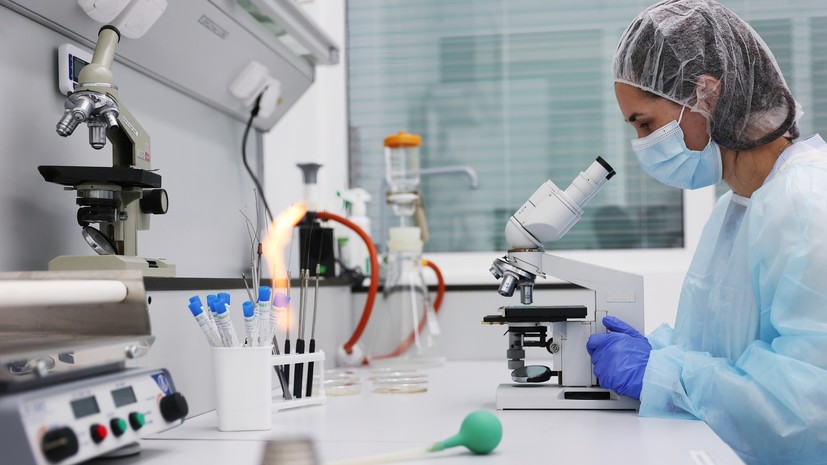The first case of monkeypox has been confirmed in Russia, Rospotrebnazdor said.
The disease was detected in a young man who returned from a trip to Europe and applied to a medical facility with a characteristic rash.
As stated in the department, the biomaterials obtained from the patient were promptly sent to the Rospotrebnadzor institution for research.
The test confirmed infection with monkeypox.
“The patient is isolated and is in a medical organization with an infectious profile.
The disease proceeds in a mild form.
There is no threat to the patient's life.
The circle of contacts of the sick person during his stay in Russia was limited.
He lived alone in the apartment, ”the Rospotrebnadzor noted.
As emphasized in the department, all persons who have been in contact with the patient have been identified and are under medical supervision.
Meanwhile, according to the Ministry of Health, a patient with confirmed monkeypox is in a satisfactory condition in St. Petersburg, he is receiving all the necessary assistance.
“The disease at the moment does not pose a threat to his life, while the health care system is ready to provide medical care to patients with monkeypox,” the ministry said in a statement to RIA Novosti.
The Ministry of Health also stated that methodological recommendations on the prevention, diagnosis and treatment of monkeypox were sent to the regions of the Russian Federation.
The document includes information on specific and non-specific preventive measures, in particular on maintaining social distance, personal hygiene rules, on the use of personal respiratory protection equipment, and on disinfection measures.
Over 90% of cases detected in Europe
Monkeypox is a viral disease, the symptoms of which in humans are similar to the symptoms observed in the past in patients with smallpox, but less severe, Rospotrebnadzor explained.
According to the agency, as of July 11, more than 9 thousand cases of the disease were detected in 59 non-endemic countries and territories.
As previously stated by the World Health Organization, up to 90% of monkeypox cases occur in Europe.
According to Hans Kluge, WHO Regional Director for Europe, Europe is at the center of an increase in the monkeypox outbreak.
The leaders in the number of detected cases are Spain (more than 2 thousand), as well as Germany and the UK (over 1.5 thousand).
According to the WHO, the only monkeypox death to date has been reported in Nigeria.
A timely investigation
Rospotrebnadzor noted that the situation with monkeypox in Russia is under strict control.
“Due to the timely start of the epidemiological investigation, the possibility of further spread of the infection was stopped,” it follows from the message of the department.
Also on russian.rt.com Those arriving in Russia from monkeypox-endemic countries are twice checked for temperature
The first case of the disease was detected using a test system sent to the regions by the Vector center of Rospotrebnadzor.
As noted in the department, primary diagnostics using these tests is carried out on the basis of 20 organizations of Rospotrebnadzor.
As explained in the department, special attention is paid to those who arrived from countries with already registered cases of infection.
At the same time, Rospotrebnadzor is of the opinion that previously vaccinated against smallpox reduces the risk of severe monkeypox due to cross-immunity.
“Thanks to the past mass vaccination against smallpox in Russia, there is a significant immune layer necessary to stop the spread of monkeypox,” the report says.
In addition, there are a sufficient number of reagent kits in Russia for the detection of monkeypox virus, as well as other orthopoxviruses.
Precautionary measures
At the same time, Rospotrebnadzor urged citizens to follow basic preventive rules when in contact with people who have arrived from countries where cases of the disease have been recorded and who feel unwell.
In particular, you should use a mask and practice hand hygiene.
As noted in the department, the disease is not highly contagious, but transmission by airborne droplets is possible with prolonged personal contact.
In addition, infection is possible through contact with damaged areas of the skin of an infected person, objects contaminated with biological fluids, as well as biomaterials from the lesions of a sick person.
Citizens visiting endemic African countries are advised to avoid contact with animals that may carry the virus, especially rodents and primates.

